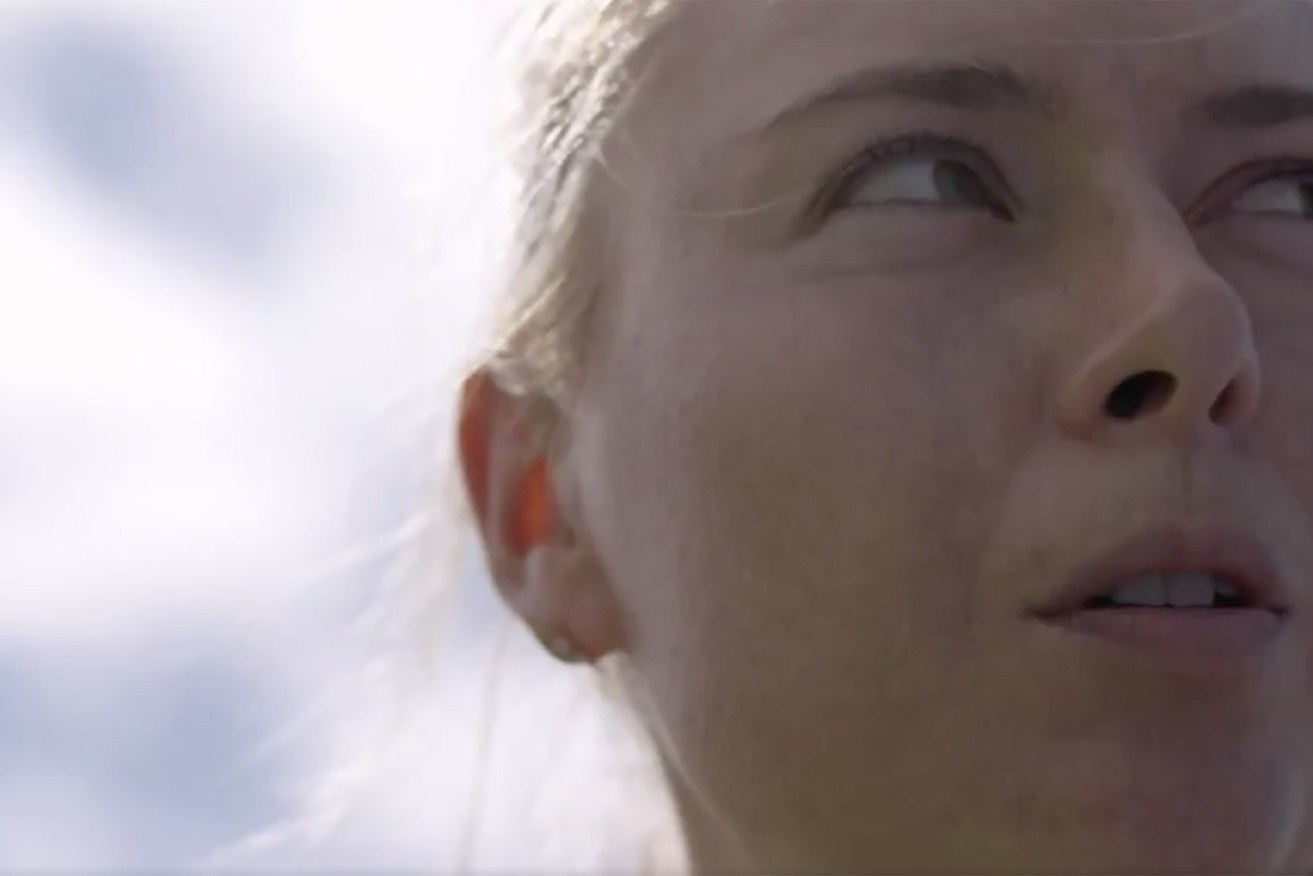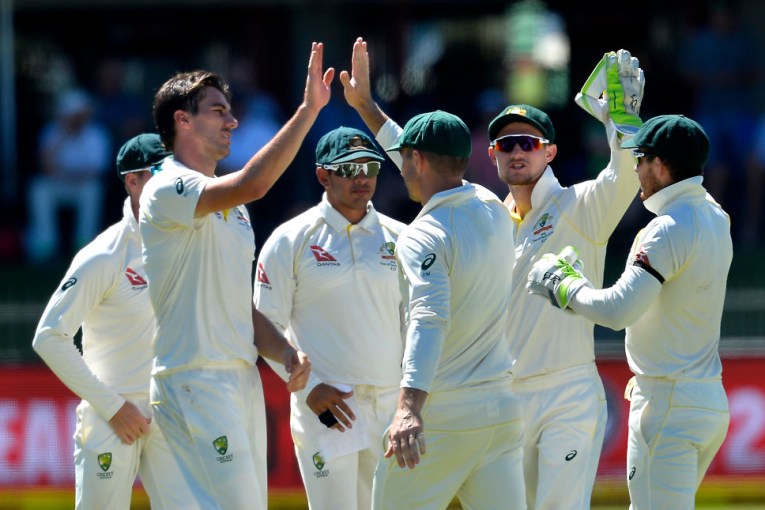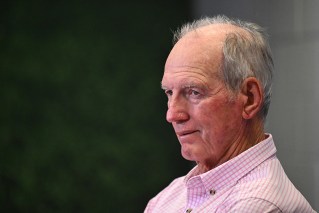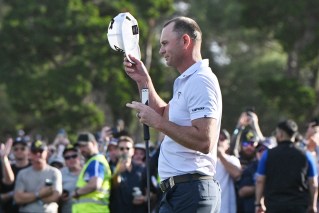Critics give Maria Sharapova’s self-made documentary a grand-slam serve


Maria Sharapova's documentary has been widely criticised. Photo: Maria Sharapova: The Point
Maria Sharapova’s documentary on her time away from tennis due to a positive drugs test has been widely criticised for being over-produced, full of product placement and light on details surrounding her absence from the sport.
The 30-year-old was famously hit with a two-year suspension, later reduced to 15 months, for meldonium use and documented her frustrations, heavy training schedule and eventual return in the 55-minute film.
The documentary, produced by IMG – the sports management giant which represents Sharapova – is called Maria Sharapova: The Point.
For those who aren’t enamoured by the film, maybe the book, due to be released in September, will be more to their liking.
Watch the trailer here:
American sports website Deadspin was perhaps the most critical of the documentary, headlining their review: ‘Maria Sharapova made an hour-long commercial and it sucked’.
“It’s easy to see the movie for what it really is: a tribute to Sharapova’s sponsors, replete with blatant product promotion and, most importantly, yet another attempt to reposition and bolster Brand Sharapova,” Deadspin said.
“From Evian to Sugarpova to Nike to SoulCycle to Beats by Dre to Head Tennis to her new book to something called Super Goop to her upcoming cameo in a Hollywood film, the documentary is a series of subtle and not-so-subtle product placements and promotions.
“All the ads apparently didn’t leave much space to include any new information about the specifics of how and why she failed the drug test in the first place, or anything substantiative about the widespread backlash she faced from players upon her return to the tour.”
Sharapova does comment on the reaction of the players and public to her ban, saying: “Whether they love me or hate me, or respect me or don’t respect me, people are curious.”
She also talks about how she is a fighter, and that she was apprehensive about returning to competitive tennis.
Sharapova, who was denied a wildcard for this year’s French Open, is currently sidelined with a thigh injury and will miss the grass-court season.
“There is no doubt that I have the hunger to come back,” she says.
“There’s a lot in me that’s very much a portrait of someone that just fights and whether that’s ugly, it’s pretty, I really don’t care.

Sharapova during a boxing scene. Photo: Maria Sharapova – The Point
“I think I’m most excited and most nervous about what I will be able to bring for myself out of this situation.
“If I didn’t feel nervous and if I didn’t feel butterflies and if I didn’t feel excited, I probably wouldn’t be coming back.”
More feedback
New York Times tennis journalist Ben Rothenberg said the documentary presented very little new information.
“A few interesting behind the scenes glimpses of Maria+team, but not enough to make it feel like a necessary 55 minutes,” he wrote on Twitter.
“And odd structuring. Maria and her team were criticised, both fairly and not, about over-controlling her media lately. This IMG-made doc is total apex of that.”
Rothenberg, who graded the movie a 2.4/10, said that he wasn’t sure “there’s enough new or surprising [elements] to justify it”.
The documentary is laced with footage of Sharapova training, be it running up hills, boxing or cycling, but there is no mention of her famous rival, Serena Williams.
It is perhaps highlighted by Sharapova’s emotional reaction to finding out her doping suspension had been reduced.
iTunes reviews for the film are far from complimentary, with one user saying it is a “pure money grab” that was “very disappointing”, while another said “too bad this is not an objective documentary”.
Sharapova, as you would expect, does not agree.
She said in an Instagram post promoting the film that it was a “very candid and vulnerable 55 minutes”, before later adding that the documentary was the most popular among iTunes’ library of sports documentaries.








